20,000 Species of Bees review - a marvel of a debut
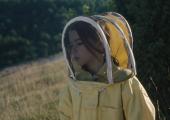

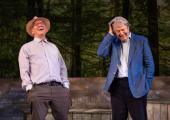
Two elderly men meet in the park while walking their dogs, and become friends. Even when friendship turns to love, the hounds tend to dominate the conversation. It’s hardly the most scintillating set-up for a play.

Less is more, except when it isn’t. Among the latest batch of overlong Oscar-tipped movies by celebrated auteurs such as Christopher Nolan (Oppenheimer with a running time of 181 minutes) and Martin Scorsese (Killers of the Flower Moon, 207 mins), it’s a relief to find the iconic Spanish filmmaker Pedro Almodóvar bucking the trend with a 31-minute short that doesn’t test the audience’s mental and physical stamina.

From Forty Shades of Blue, 20 years ago, to Keep the Lights On and Love is Strange, writer/director Ira Sachs has proved himself to be a master at exploring romantic relationships – and the messier, the better. So, after the whimsical, inconsequential ensemble Frankie, he’s back to his best with a good old-fashioned love triangle.
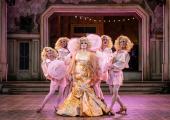
Forty years ago, the world was very different for gay men. AIDS was devastating their communities, especially in the big cities where hard-won enclaves of acceptance were being hollowed out, one sunken-eyed friend after another. Media screamed “Gay Plague” and some politicians barely suppressed their glee at the “perverts’” comeuppance.
Allies were thin on the ground, the redtop press with their finger on the outing trigger never happier than when destroying lives for circulation.
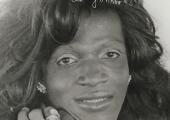
A “back to basics” album is a risky thing. When an act has expanded into big, lavish or experimental production, it’s not a simple act to strip that away. Trying to go back to the intimacy or spontaneity of early work can feel forced: they may find they’ve become reliant on the possibilities of studio craft, or simply evolved into a different kind of artist. U2’s recent horrorshow of a catalogue-reworking album, for example, shows just how laboured such an exercise can be.
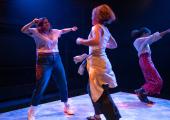
There are some songs, and singers, that make your heart swell. One of them, for me, is Ani DiFranco’s 1998 single “Little Plastic Castle”, so I was delighted to see that Isley Lynn, in the playtext of her new show at the Orange Tree Theatre, has chosen, as an epigraph, a line from DiFranco’s song “Promised Land”: “And they say that the truth will set you free/ But then so will a lie.”
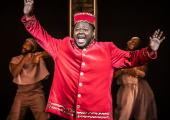
If you are going to see A Strange Loop, the new American musical trailing a Tony Award and a Pulitzer Prize that has arrived at the Barbican, here’s a checklist of topics to make sure you are on top of first: intersectionality, Harriet Tubman, Marcus Garvey, gospel plays, James Baldwin, the Chitlin’ Circuit, bell hooks, the back catalogue of Tyler Perry. Especially Tyler Perry.

Tony Kushner’s early 1990s play Angels in America is an epochal, mystical, political, state-of-the-nation address, revolving around the AIDs epidemic. By no means straightforward, its narrative runs the gamut from New York’s gay scene to God’s own sexual proclivities, via the ghost of executed Cold War spy Ethel Rosenberg, the fall of the Soviet Bloc and much else.
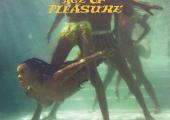
There’s been a good deal of discussion on “the socials” about how much Janelle Monáe’s sexy image is a new thing or a big deal.
Casual viewers, still stuck on the suit-wearing image with which she crashed into public consciousness in 2010, have acted shocked at her going almost or completely unclad in recent videos and shoots. In turn fans have pointed out the obvious – that her outré sense of fashion and costumery has manifested in many ways over the years, including in plenty of flesh-baring.